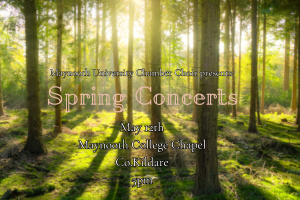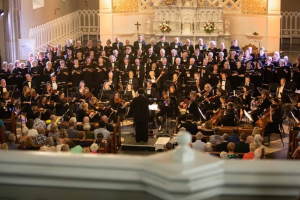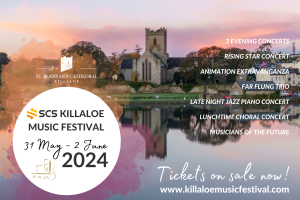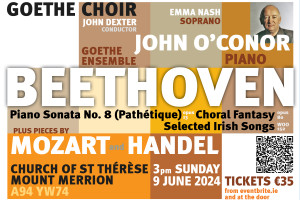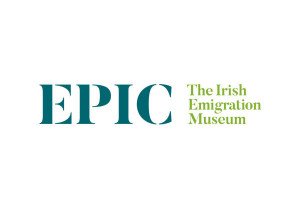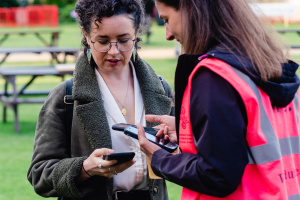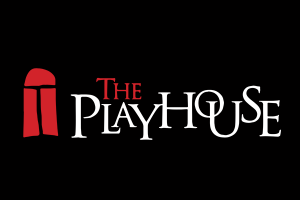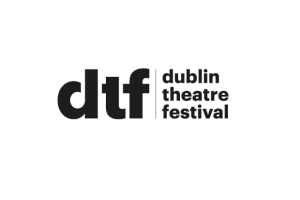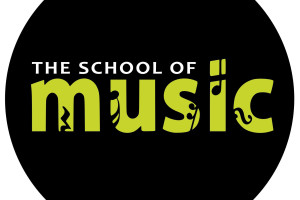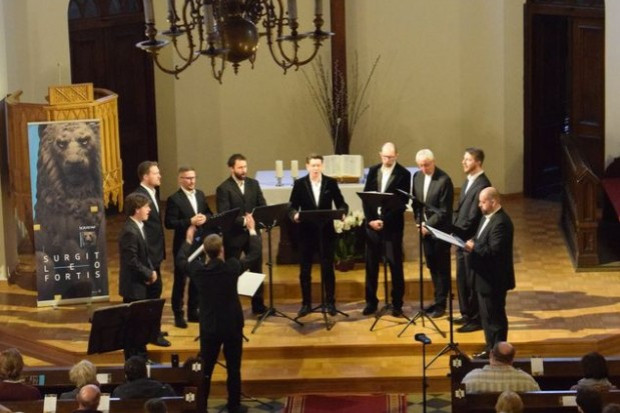
Jerycho - The Art of Medieval Polyphony - Polish Vocal Ensemble
Sunday 1st October 3.30 pm (Note starting time)
The Black Abbey, Kilkenny
Jerycho
Paweł Szczyciński, Mateusz Grzyb – tenor
Maciej Królikowski, Wawrzyniec Dąbrowski – baritone
Łukasz Kalisz, Stanisław Szczyciński – bass
Rafał Kanowski - basso profondo
Bartosz Izbicki – director
The Art of Medieval Polyphony
Hymnus: Inventor rutili – improvised 2-part polyphony, 11th cent.
Cantio: Vox nostra – Codex Calixtinus, 12th cent.
Organum: Alleluia. Vocavit Iesus Iacobum – Codex Calixtinus, 12th cent.
Conductus: Congaudeant Catholici – Codex Calixtinus, 12th cent
Prosa: Mane prima sabbati – France (Perotinus), 13th cent.
Motet: Mater Dei/Mater Virgo pia/Eius – France, 14th cent.
Motet Ave Virgo regia/Ave gloriosa/Domino – France, 14th cent.
Motet: Ortorum virentium/Virga Iesse/Victimae – Italia, 14th cent.
Motet: Veni Virgo beatissima/Veni sancte Spiritus/Pneuma – France, 14th cent
Motet Alle psallite cum luya – France, 14th cent.
Motet Unde gaudent/Eya Dei iherarchia/Nostra iocunda – Bohemia, 15th cent.
Motet Christus surrexit vinctos/Chorus nove/Christus surrexit- Bohemia, 15th cent.
Motet Christus iam surrexit/Terra tremuit/Angelus Domini/Surrexit Christus – Bohemia, 15th cent.
Cantio: Salve thronus Trinitatis, Maria – Poland, 15th cent.
Petrus de Grudencz: Presulis eminenciam totam - Poland, 15th cent.
Benedicamus Domino – organum
Medieval Music in a Medieval Abbey
The Middle Ages was a time of birth and unprecedented development of polyphonic chant. Simple 2-part forms, derived from improvised oral practices, were quickly followed by organum - monumental, melismatic pieces characteristic to the solemn liturgy. Starting with famous Codex Calixtinus the 3-part pieces were notated. But polyphonic singing not only became the hallmark of the solemn liturgy. Polytextual motet was one of the most interesting musical phenomenon, a form that had spread all over Europe reaching Central and Eastern Europe. In the late Middle Ages motets were influenced by folk singing and became more simple in composing technique, which resulted in intelligible and very effective musical miniatures. Ensemble Jerycho, drawing from living performance practices, enlivens old musical notations creating forms full of emotions and vitality, which results in an enthusiastic reception of their concerts. By creating a new musical space around motets, tropes and sequences, Jerycho realizes the vision of a living singing tradition practiced until the 19th century. The ensemble made its debut in 2014 and since then has been active in Poland and throughout Europe. They have recorded several CDs including, in 2018, “Surgit Leo fortis”, which presented a vision of the practice of music-making of late medieval brotherhoods from Poland and the Czech Republic. Jerycho’s director, Bartosz Izbicki is a musicologist and organist who studied with Fr. prof. Jerzy Pikulik and Marcel Pérès. For over 20 years he has been exploring the Polish tradition of chant, liturgical monody and devotional song. In 2013, he founded the Jerycho ensemble, with which he realizes his vision of sacred music, rooted in tradition and at the same time attractive to the modern listener.











